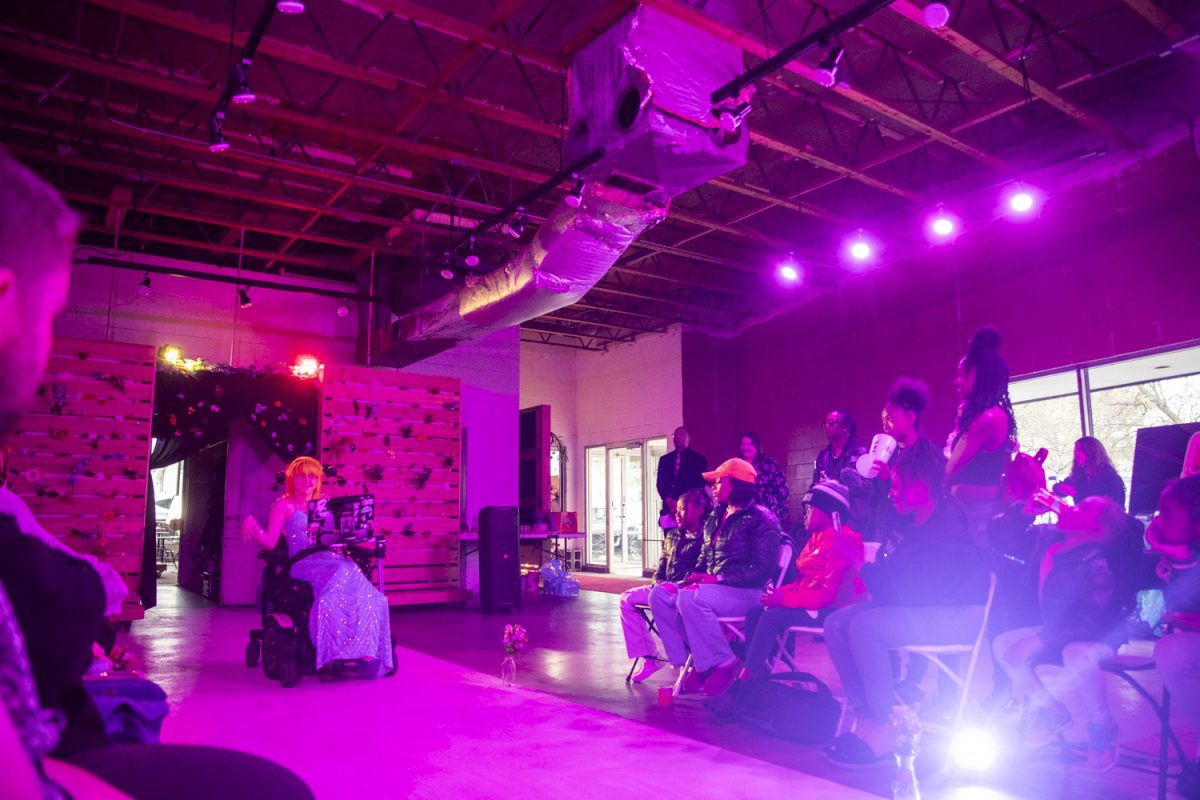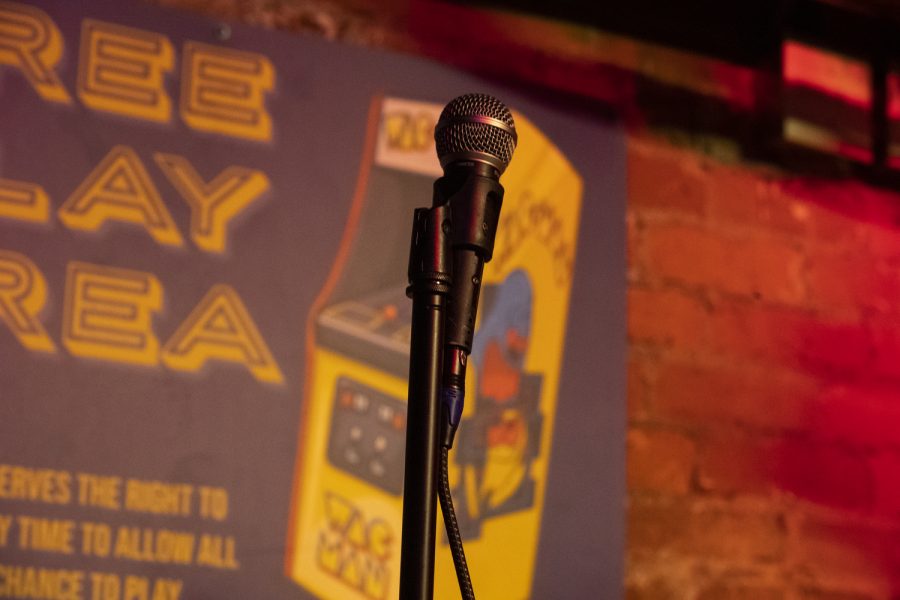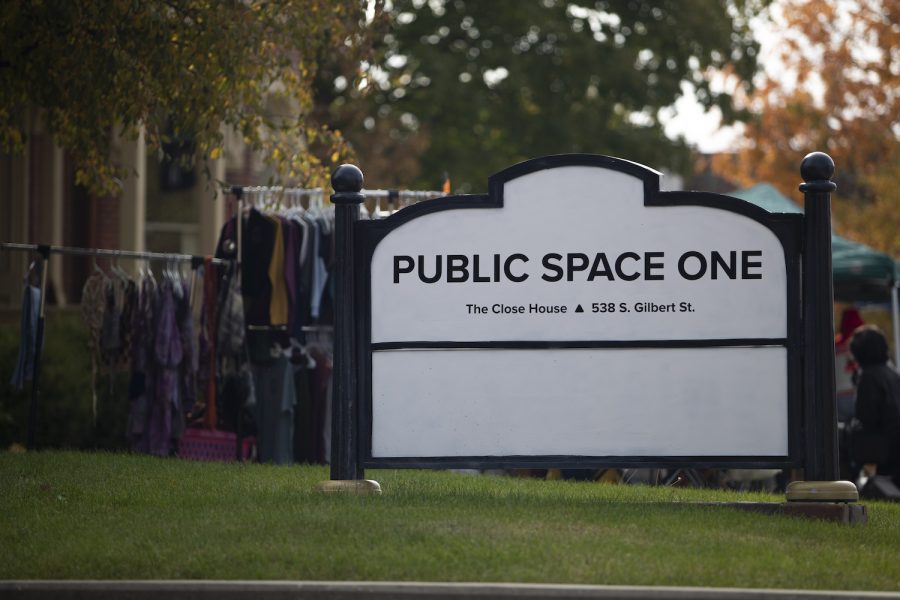Tom Grimes sat beneath a stoplight at dusk some 20 years ago, wondering how he ended up in Iowa City.
Being accustomed to the thrills of New York City, the place he then called home, he was bewildered by the lack of disturbances in the Midwestern town. He soon got used to the quiet.
From 1989 to 1991, the Iowa Writers’ Workshop student walked around the brick-paved streets of the city he once described as “being on an island in the middle of nowhere.”
Yet the setting, remote as it was, was ideal for writing. Over drinks, Grimes and his fellow Workshop students discussed it. In the cold winter months, he wrote. And in the heart of the nation, an oasis of creativity blossomed.
“The town was small,” Grimes said. “We were all there, a very tight community.”
In 1922, the then-dean of the Graduate College, Carl Seashore, decided that the University of Iowa would offer advanced degrees for creative theses. The Workshop was founded in 1936, the first of its kind, under Wilber Schramm. It continues to serve as the model for contemporary writing programs nationwide.
And to celebrate its 75th anniversary, the Workshop will host reunion a this weekend. The events will kick off at 8 p.m. today at the Englert Theatre, 221 E. Washington St., with a keynote address by Pulitzer Prize-winning author Marilynne Robinson, who teaches fiction writing at the Workshop.
Workshop Director Lan Samantha Chang said she feels like a “steward of the program” whose role is to keep the program “as great as it is.”
“[The Workshop] has a significant impact on contemporary American literature,” she said. “And we want to honor that.”
Organizers of this weekend’s reunion have spent the last year planning for the event and faced the difficult task of selecting 50 of the hundreds of established and acclaimed alumni to speak at numerous panel discussions.
And over 75 years, many of the writers who left the program went on to be award-winning novelists, poets, and nonfiction writers — each shaped by their time in Iowa City.
Early educators at the UI pioneered the idea of accepting creative-writing theses and granting students advanced degrees for doing so. The now-common practice dubbed “workshopping,” involving intense and meticulous reading and analyzing each student’s work, was innovated at the writer-friendly university in the first half of the 20th century.
Poetry alumnus Marvin Bell, who was enrolled in the Workshop between 1961 and 1964, participated in a program far different from today’s established institution.
Bell and other Workshop students met in a temporary building along the Iowa River near the IMU. Bell recalled a toilet that flushed hot water and a “small, windowless room” where workshopping took place.
“It was, as they used to say, a ‘bohemian’ lifestyle and vaguely disreputable,” said Bell, Iowa’s first poet laureate.
Shortly after graduation, he was asked to teach poetry at the Workshop. Throughout his 40 years as a professor, the essence of the program remained the same — it just took on more accolades.
“The biggest thing is that writing workshops have become more professional,” Bell said. “We were amateurs.”
And as leadership, funds, and interest continued to grow, the program followed.
One or two sections of each genre became four in poetry or five in fiction. Two-hour sessions turned into three. Public readings became the norm.
The program became far more reputable than its early beginnings.
“You walk into that building, and it’s not quite a church or a temple, but essentially, it’s a step into a threshold in which your life will change in the course of two years,” Grimes said. “It’s a gift that you’ll never forget, at least for me, anyway.”
Today, gaining acceptance to the Workshop is difficult. Approximately 1,600 people apply to the Workshop each year, Chang said. Of those, around 25 applicants are accepted into the fiction program and 25 into the poetry program.
Chang, who was selected as the Workshop director in 2006, is in charge of reading applicant’s work and selecting the handful who will undergo the two-year program.
“I look at all the applications, and then suddenly, you read something that makes your heart leap,” said Chang, a Workshop alumna and novelist. “The personality of another unique human being with a voice” is what captivates her attention, she said.
For those fortunate enough to make the final cut, they will be able to experience the workshopping process that defines the program.
“The model is simplicity itself: student and teacher are all in this together,” Bell said. “We talk about writing in seminars and discuss our own writing in workshops, but all of it is just an excuse for a community of active writers.”
Everyone at the Workshop is different. Each possesses a unique style, mindset, and voice.
Kelly Smith found the eclectic environment to be an ideal place to foster creativity.
“You don’t always have many peers with the same values to help you grow as a writer,” said Smith, a Workshop alumna and librarian at Dey House.
This weekend, people will gather in Iowa City from near and far to celebrate the many writers who have helped spur interest in creative programs across the nation.
Yet beneath the acclaim, the writers are simply doing what they love.
“In any case,” said Bell, “every person needs something to do in his or her life that he or she would do even if no one paid.”






